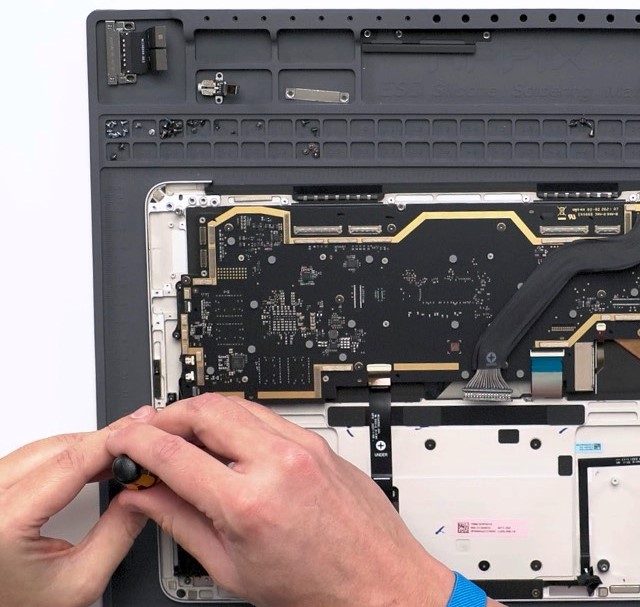Budget lacks business specific policies
New Zealand’s SMEs may have been left wanting more from today’s Government Budget, according to accounting and business solutions provider MYOB.
1K
New Zealand’s SMEs may have been left wanting more from today’s Government Budget, according to accounting and business solutions provider MYOB.
MYOB New Zealand sales manager–SME Solutions Division Scott Gardiner says that while local businesses won’t be surprised by today’s budget, they would have wanted to see more specific policies that recognise the importance of growing this vital sector of the economy.
“A large majority of New Zealand’s SME community approves of the Government’s handling of the economy, according to our regular Business Monitor research,” says Gardiner.
“National’s ‘steady-a-she-goes’ approach over the last several years has seen both confidence in their economic policy and their support for local business rise, especially as the fortunes of businesses across the SME sector have improved.”
However, Gardiner believes over the next 12 months, local SMEs will be looking to the Government to provide both more investment and, in particular, greater simplicity for the SME sector.
“Today’s extension of the R&D tax credit scheme will be welcomed, especially in our burgeoning SME tech-sector. However, the majority of local SMEs aren’t in a position to qualify for the scheme.”
“Instead, what they are looking for is more Government focus on the things that will make a difference across the board.”
In the latest MYOB Business Monitor survey of over 1000 local small and medium businesses from across the country, 71% of SME operators thought small businesses should be given special tax breaks.
This call was particularly strong from operators in the retail and hospitality sector, in which 81% of operators believe the Government should provide tax relief. Business operators in the transport and logistics sector (77%) and the trades (76%) were also strongly in favour of SME tax breaks.
“I think cutting the business tax rate is something that currently runs contrary to the Government’s focus on returning to surplus,” says Gardiner. “However it is clear that SMEs feel they could be doing more to stimulate growth and investment in the small business economy.”
Gardiner says, in contrast to the Australian Budget earlier in the month, SMEs didn’t feature particularly strongly in today’s announcements.
“The Australian Government was very clear on the value it saw SMEs bringing to the local economy. Their budget had a raft of stimulus packages that were wholly focused on SMEs – from tax reduction to credits on small capital investments.”
“And while New Zealand SMEs can be satisfied they are currently in a better place than their Australian counterparts, they could be forgiven for looking across the ditch and wondering whether more of that approach could be provided here.”
According to the latest MYOB Business Monitor SME economy report, released in March, 32 percent of local SMEs saw revenue rise in the last 12 months compared to just 23 percent of SMEs in Australia.
“We are coming off our record levels of growth in the SME economy though, and with some constraints around increasing fuel costs, the higher dollar, and slowing demand in the dairy sector – as well as from key export markets like Australia, many business owners believe now is the time to start considering new investment in SME growth.”
Gardiner says one of the key areas the Government could support SMEs without significant cost is in the area of tax simplification.
“The Government’s focus on the development of the New Zealand Business Number in the Budget is a good sign of their intentions to simplify interactions with government agencies.”
“However, every year, number one on the wish list for SME operators is for the Government to simplify provisional tax. It’s a constant bugbear of small business – and anything that can be done in the area of tax simplification will make a major difference to business.”
In MYOB’s pre-election Monitor survey, 67 percent of SME operators supported the idea of simplifying provisional tax. Just 15 percent supported the idea of a capital gains tax, with 60 percent opposed, while only 25 percent wanted to see GST introduced for online purchases from offshore – while 36 percent were against the idea.
“Our SMEs really are the lifeblood of the local economy. They not only provide a direct contribution to the economy, they also stimulate local growth – especially in the regions; they employ many staff – often giving young people their first employment opportunity; and they create knowledge through research and sheer entrepreneurialism.”
“I’m sure most SME business owners will – when they get a couple of spare minutes to look up from the work they are doing – appreciate the Government is continuing their prudent approach to managing the economy. However, it would be a great vote of confidence in all the value they bring to our economy if the Government were to signal that – like the Australian Government – New Zealand’s SMEs are a real focus for the year ahead.”






